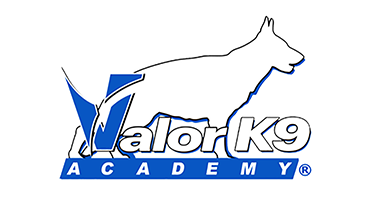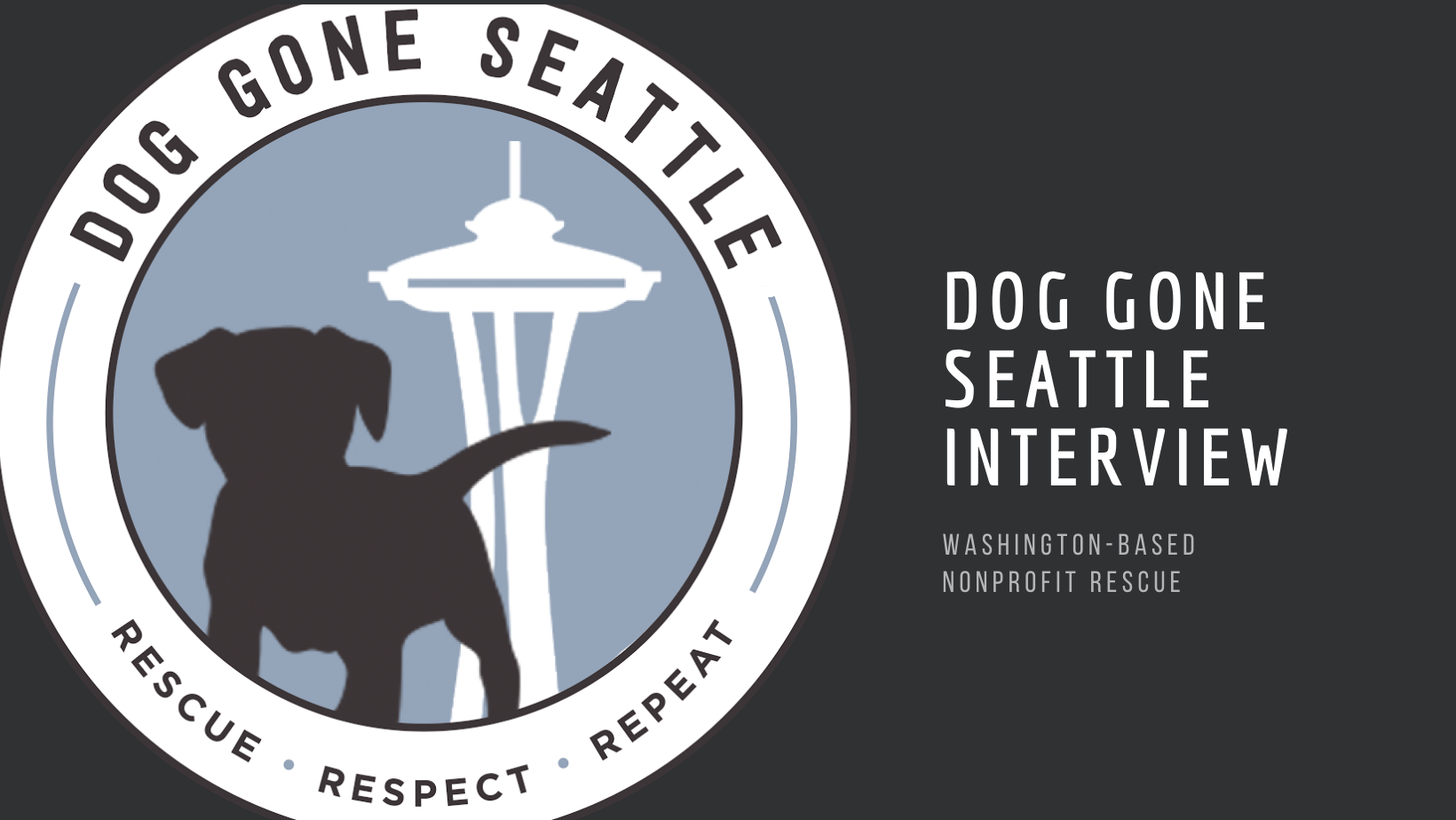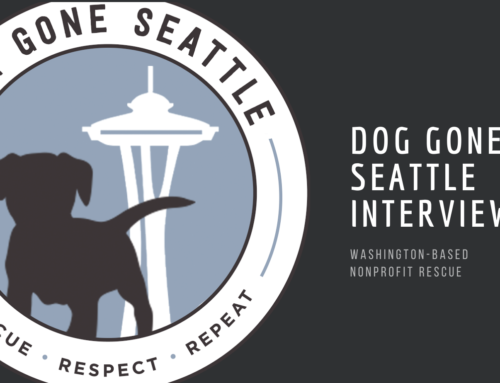Dog Gone Seattle based in Seattle, WA, rescues dogs from shelters all over the nation and provides them safe-haven and a forever home. They are an incredible group of volunteers run by the Nordins. In this article, part 2 of 2 in our DGS interview, I ask Jenni Nordin some questions about Dog Gone Seattle. She generously offers detailed answers that give us great insight into the world of animal rescue.
Part 2:
6. You’re strong believers in training. Why?
While there are dogs like Ross who are neglected or abandoned, the majority of dogs are surrendered or end up in shelters due to (often mild) behavior issues that families are ill equipped to handle. Some families like the idea of having a dog, but aren’t willing or able to expend the necessary energy to have a well-mannered pup. Other families are well-intentioned but misinformed — and let’s be honest, if you “Google it” or throw a dart at a wall of “dog trainers” you’re likely going to get some bad information. Then there is this ideology around dog rescue: the idyllic yet dangerous notion that patience, love and treats heals all.
When we think about training, we aim to foster a pet dog that can be included in your life. A dog that can walk down the street without acting crazy, a dog that can relax in the house, a dog that you can trust not to bite the mailman or the neighbor’s dog. That is a dog with a family; that is a happy dog. Don’t get me wrong, trick training is fun! But I don’t know of any dog who ever lost his home because he wouldn’t roll over. It is our responsibility to help dogs be successful in their homes, and never end up in a shelter again.
As a rescue, we work diligently to help owners understand what dogs need to be successful as pets. (It’s often more structure and boundaries than what people are inclined to offer.) This starts with educating our fosters — requiring decompression and routine, crate training, etc. It is our goal that every dog adopted from our rescue is crate trained, house trained, and can walk on a loose leash. We provide virtual and in person training support for any foster who needs help to achieve this goal. We also bring in professionals like Valor K9 to host training seminars for our fosters and volunteers. For individuals interested in advancing their skills and abilities, we support them by sponsoring attendance at seminars and shadow programs. “Teach a man to fish!” Investing in our people builds our community and serves our greater mission.
We also share training insights with adopters and provide support as needed while the dog settles in, and for the lifetime of the dog. With our commitment to training, we have cultivated a network of local dog trainers who not only foster difficult dogs when able, but are also available to adopters professionally if issues arise.
As our network of fosters and adopters grows, we are building a community of responsible training oriented dog owners who will also serve as a resource to other dog owners; this is fundamental to our mission.
7. Rescue never sleeps. What types of hours do you work?
It was really bad in the beginning. I was working over 14 hours a day, every day, with much of that work in front of a computer until the early morning hours. I preferred to do my emails late at night so I could actually clear my inbox; otherwise people would respond too quickly and the inbox was never empty, which — as a Type A personality with a touch of OCD — was a problem for me. I typically wouldn’t get to sleep until after 4am. Daytime hours were spent running intakes, transporting, training, and caring for my own 2-3 foster dogs.
Running a rescue you quickly learn that dogs do not have “work hours” and medical emergencies can happen any time of the day or night, but usually at night when the regular vet is closed. It’s totally normal to get vomit or poop picture texts at all hours, and dogs prefer to get lost right before the sun goes down. I wouldn’t go anywhere without WiFi after a disaster of a camping trip in which I drove 60 minutes roundtrip to get cellphone service several times a day. My husband was not impressed. The responsibility felt like a ball and chain at times and I regularly questioned my sanity, leaving a “normal” career in business development for a daily (and nightly) existence of firefighting and whack-a-mole.
It wasn’t sustainable.
Luckily, I was able to build an amazing team pretty early on (thank you, power of attraction!) and I learned to delegate. I also had a baby in 2019, bringing whole new meaning to the term time management.
We now have a small staff and dedicated volunteer infrastructure who handle what used to take so much of my time. My work day still typically involves intakes, transporting and training (the fun stuff!) and I still handle (a much lower volume of) emails at night. I still work crazy hours and never turn my phone off. But I do put my laptop away with unread emails more often than not, and have even reluctantly taken a couple of successful camping trips out of WiFi range! I no longer feel on the verge of burnout, and that simply wouldn’t be the case without the wonderful DGS staff and volunteers whose hard work and dedication keep the rescue running smoothly. It truly takes a village
8. What are your feelings towards ethical, responsible breeders?
There are too few of them. The breeders I interact with would not qualify as ethical or responsible, because our communications typically occur when an owner needs to rehome a purebred dog purchased from a breeder, and the breeder won’t take the dog back. In my opinion, an ethical responsible breeder doesn’t do that.
In rescue there are a lot of people who scream loudly “Adopt Don’t Shop.” You won’t see Dog Gone Seattle do that. I think there is a place for breeders, absolutely. Good breeding is a science and an art. So much time and research and money goes into ensuring health and temperament. Well bred dogs should cost thousands of dollars and there are waiting lists. The parents are on site or available to meet. In reality, most purebred dogs for sale are not from ethical responsible breeders. The Golden Retriever bought on Craigslist for $1,200 or the “Applehead Chihuahua” purchased online and shipped don’t qualify. Don’t even get me started on designer dog breeds! Just say no to Pitweenies. I tell people, if you’re buying a dog online, chances are the parents are in puppy mills. If you’re buying a puppy off Craigslist, you’re getting an irresponsibly bred puppy at best, and a sickly Parvo puppy that may not make it at worst. And to those people who “rescued” a puppy from an “oopsies” litter, more than likely you are lining the pockets of people who are breeding their dogs and swindling big hearted but gullible folks. That dog will have another oopsies litter because those folks just made several thousand dollars off that mistake.
Sorry, I have gone down a rabbit hole! The variation in dog breeds is so special, and we need ethical responsible breeders to maintain the diversity and characteristics of the lines. I hope to have a well bred German Shepherd one day; for now I have my very neurotic but well-meaning and handsome foster fail Mando, who was confiscated from some backyard breeder in San Bernadino with too many shepherds living in a tick infested dirt pile.
9. Is there anything else you’d like to tell us?
Yes, three things.
1) Not all rescues are created equal. If you are going to adopt from a rescue (by which I mean a private organization, not a public shelter) make sure that you spend time with the dog to get to know his or her personality and compatibility in your home. The organization should be concerned about ensuring a good fit, not taking an adoption fee from the first family willing to pay it. The rescue should have completed thorough vetting including spay/neuter, core vaccinations and microchipping. Make sure that the rescue has a contract which includes taking the dog back if s/he is not a good fit. If you feel like something is off with the organization, trust your gut. There are unscrupulous rescues out there, and just like bad breeders, they don’t deserve your support.
2) It’s not “all in how you raise them.” So often we have families wanting to adopt a puppy because they believe that if they raise them right, the dog will get along with cats, guinea pigs, snakes, obnoxious toddlers, elderly uncles with canes, etc. That’s just not the case. Genetics are a huge component of a dog’s personality and you really can’t know a dog’s personality or temperament until they have gone through their fear periods and are over a year old. We once had a litter of puppies born into rescue, lovingly raised with their mom and appropriately socialized in an experienced foster home until adoption to wonderful families at 8-10 weeks. Every single one of those puppies developed stranger danger and varying degrees of fear aggression toward people at around one year old. Another puppy we adopted to a home at 10 weeks of age was raised with a cat. At 10 months old, she killed a cat in the home. It’s not all in how you raise them! (I would say the exception would be if you are getting a puppy from a responsible ethical breeder; then you can have a pretty good idea of what the dog’s temperament is likely to be if raised right, but it’s still not 100% guaranteed.) If you have a lot of boxes to check — i.e. you want a kid and cat friendly dog that will be happy to join you at the dog-friendly brewery) then look for a 1+ year old dog that is in foster care that checks those boxes now, as is!
3) Consider fostering to find the best fit for your home. If you are in a position to offer a structured environment, have balanced resident dogs, well-trained (LOL) children and can partner with a trusted rescue, fostering can be a wonderful and rewarding way to find the right fit for your home. (You don’t have to have dogs, you just shouldn’t have nutty dogs.) Be sure to clarify with the rescue their policy on “foster fails” in advance. Also, keep in mind that fostering is an emotional process so if you are looking to adopt, I recommend making a list of “must haves” and “nice to haves” and then don’t compromise on your must haves. It may take time to find the right fit but it will be so worth it in the end; and the process is literally life-saving and will also make you a more capable dog owner. It is truly so rewarding and life-changing: 10/10 would recommend.
And that’s a wrap! Thank you so much, Jenny, for taking the time out of your incredibly busy days to do this interview with us. You’re are an amazing person! And we are so thankful for your rescue and all the good you do for the dogs we love.
If you’d like to follow along with DGS’s journey or support them in some way, find them online at https://www.doggoneseattle.org/ , on Facebook or on Instagram!







Leave A Comment